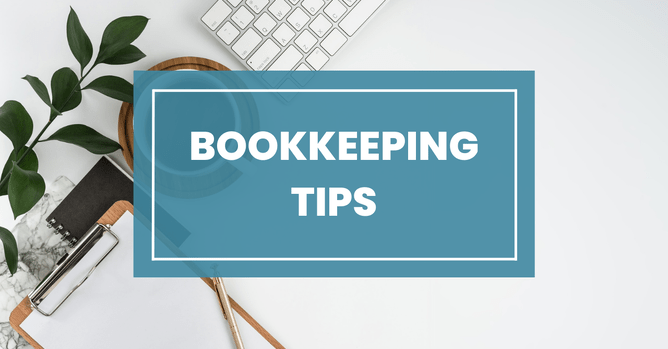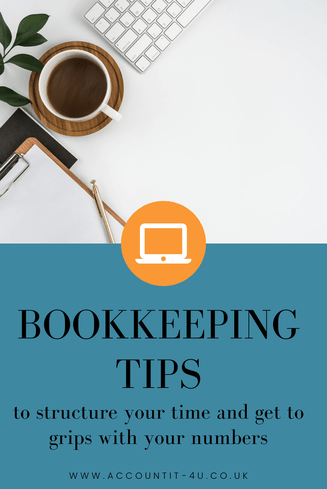Whether your hobby has become a little side-hustle, you're just starting out in business or have been trading for a few years you should keep a record of all your business related incomings and outgoings so that you are fully prepared for your end of year taxes.
The aim of this article is to help you understand how take charge and understand of your financial records. These tips apply to those that are managing their own bookkeeping, but if you already use a Bookkeeper or Accountant they may help you understand why you are being asked to do something in a particular way.
disclaimer time - while these tips are aimed at helping you save time and/or money they should be are best practice tips and not tax or financial advice.
First Up!
Book a date with yourself so that you can concentrate and complete what you need to do without interruption.
Actually block an appointment in your diary!
Just 15minutes a day*
Then grab a coffee (or your favourite beverage!) and sit down at your desk and work through one of the tips per day.
By breaking the tasks down into smaller 'chunks' of time it stops you getting overwhelmed by the amount or procrastinate & put off because you don't know where to start.
At the end of the week you should feel free to go off and enjoy your weekend with family & friends without worrying you about what you've not done.
*15mins a day to keep on top of the 'paperwork' you may need longer (to start) if you have a lot of transactions
1: Business Bank Account
If you run a Limited Company it will be a requirement that the business has it's own bank account, due to its separate entity status
For Sole-Traders you and your business are considered one and there is no legal requirement to have a separate account., however I would thoroughly recommend that you have one - It doesn't need to be a business bank account you could open another personal account as long as you only use it for your business transactions.
WHY?
It is an essential that business expenses must be wholly attributable to the use within the business. Therefore, it is important to keep your personal and business transactions separate.
By ensuring your business transactions are only paid or received into one designated account you will save time in not having to sift through your bank statement to identifying business expenses paid from your personal account.
Which in turn helps you to reconcile your income & costs and keep track of your cashflow.
2: Invoice your fees promptly
If you have a product based business you probably already ensure you have payment before your ship the item to the customer or allow them to take it away from your store. But ...
If you are Service based business when should you invoice? There's no right or wrong time but ''as soon as possible" is my best advice!
Why?
As a service business your time is your 'product' so you want to see a return for your hard work as soon as possible.
Therefore..
.. as soon as you've finished a 'job' you should be requesting payment.
..if it is regular monthly service consider invoicing at the start of month so you have payment in advance not arrears.
..if it is a project over a fixed period, consider invoicing instalments across the timescale
..if you have to make a large outlay for equipment or materials before you can start the job don't be afraid to ask for an deposit in advance and then a balance payment when you've finished.
How long should you give you client to pay? That's your decision but I'd encourage you not to over extend credit! The longer you give someone to pay the longer it will take to see the money in your bank account. It is common to see payment terms of 30days but this is not mandatory requirement, you can set your payment terms at whatever you wish them to be as long as you advise the client of them (you may need to update terms and conditions).
Remember .. you may have sold your service or product but you can't really count it as income until you have the money in the bank.
3: Save for you taxes
One of the constant of life - is you have to pay your tax! If you're a limited company that will be Corporation Tax, if you are Sole-Trader it will be Income Tax (and National Insurance Contributions)
Therefore, I highly recommend you save a % of your income each month into a separate account or saving pot towards your end of year tax bill, this will save you being surprised by the expense at the end of the year. If you have a bank account that allows you to set up separate savings pots these are really handy for this, but if you think you may be tempted to dip into the money you may be better to open a separate bank saving account to hold the money in until you need it.
What % should you save? This will depend on your tax rate of either Income or Corporation Tax but as a rough guide if your Income falls within the basic rate band you should save between 20% and 25% to cover both Tax and NI
VAT Registered? Unfortunately VAT receipts don't belong to you, you're just collecting it on behalf of the government luckily the VAT you pay-out on your supplier invoices is considered a payment to the government but make sure you save the balance of your VAT account each month to a saving pot so you can pay your quarterly bill.
4: Keep track of your expenses
Keeping track of your business expenses helps you to get a clear picture of the health of your business. You may know how much income you are receiving but do you know how much profit you are earning?
Sales less Expenses = Profit
Therefore it essential to understand how much you are spending on running your business to achieve your Income so that you make a profit which is your 'reward' for your hard work. If you're spending more than you earn you'll not have a viable business.
Tax Deductible
Many business expenses can be deducted from your income, when working out your taxable income but you need to keep a copy of the supplier invoice or till receipt to act as proof purchase that the item was for business use. Therefore, the more business expenses you can qualify the lower your taxable income meaning a lower tax bill!
5: Set up your accounting system
You need to a system to help you record your business transactions, you can do this by using paper-based ledgers or spreadsheets on your computer but both of these manual systems can be quite time-consuming.
The most popular systems today are Accounting Software Systems that are held on a cloud (remoter server), these are subscription based and can be accessed from anywhere (providing you have an internet connection) so you don't need to be tied to an office based PC. In fact most of the main systems now come with a mobile phone app. so you don't even need to open a laptop for some transactions!. When choosing a software you should consider which options are best for your business and industry, but also think about what you need as your business grows can the system you choose grow with you?
Whichever system you choose there are three main 'Books' (known as the books or prime entry) that you need to understand. These form the basis of how accounting works:
i) The Cash Book - this is a register of all money coming in and going out of your business, it is your version of your bank account and should be reconciled against your bank to ensure you have captured all transactions.
ii) The Sales Ledger (Debtors/Accounts Receivable) - this is a register of all your invoices as you issue them keeping a record of the Client, what was sold, the Invoice number, date issued and Amount. When an invoice is paid you mark it as paid, and unpaid invoices are easy to identify so that the client can be chased.
iii) The Purchase Ledger (Creditors/Accounts Payable) - this is a register of all invoices you receive from your Suppliers again you should keep a record of the Supplier, what was purchased, the invoice number, invoice date and Amount and due date. You can review this list regular to identify when Suppliers need to be paid and prepare your payments.
Once you have these records in place they feed into either the General(Nominal) Ledger, which is register of the categories of your Sales and Expenses and from this your Profit and Loss report and Balance Sheet can be prepared, and your taxable income identified for your tax bill.
As you can see there's a fair bit of setting up to do for a manual system to work (and I've only touched on the basic details here). Which is why I would recommend choosing an Accounting Software package all these 'books' are the basis of the software and will come with a basic set of coding or categories in the general ledger for recording your Sales and Expenses so you could easily 'plug & play'! but you will probably want or need to make a view changes to these so that you can record your transactions in the way that is best suited for your business.
6: Outsource It!
If you have any doubts or are overwhelmed by the work involved you should seek assistance from a Bookkeeper or Accountant to help you get started rather than run with the system for the year and not then not being able to make sense of the results at the end of the year when you need to do your tax return. As it will take less time and money to invest in the setup at the start then to 'unravel' 12mths transactions to meet the filing deadline.
Which brings me to a final bonus tip!
You started your business to support your dreams and goals, doing something you enjoyed doing and wanted other people to see, use or benefit from. You didn't think you'd end up juggling your time so that you can do the Accounting, Marketing, Sales on top of providing your service/product. Therefore, sometimes the best thing to do is to stand back and take a good look at everything you have to do - make a list!
What do you have to do? What do you need to do? What do I do best? What do I like doing? What do I dislike doing? What could someone else do for me?
Once you have a list of the tasks that you feel confident that someone else could do it better or take less time. Do you take on an employee or to outsource?
By outsourcing you are receiving the be benefit of the knowledge, expertise and experience of another individual or business to help you achieve your goals and targets.
It allows you to concentrate your time on the areas of your business that you need to give full attention, and it also helps to reduce risk as you have the support of a team or individual that will identify and fix a problem quickly, preventing a loss that could impact on your business.
If you'd like to know more
If you have any questions about your bookkeeping,
or
Would like to know more about outsourcing it
Please contact me at: hello@accountit-4u.co.uk












